To fix the horn delay issue on a jeep wrangler, you can adjust the horn relay or replace it with a new one. In some cases, a firmware update can also resolve the problem.
Horn delay on a jeep wrangler can be frustrating, but there are several simple solutions to resolve the issue. One potential fix is adjusting the horn relay, which is located in the power distribution center under the hood. By making slight adjustments to the relay, you may be able to fix the delay.
If this doesn’t work, replacing the relay with a new one could solve the problem. Another solution is to update the firmware of your jeep wrangler. In some instances, outdated or faulty firmware can cause the horn delay.
Contact your dealership or a professional mechanic to perform the update. By implementing these fixes, you can address the horn delay problem in your jeep wrangler and enjoy uninterrupted horn functionality.
Common Reasons For Horn Delay In Jeep Wrangler
If you own a jeep wrangler and you’re experiencing a delay when honking the horn, it can be quite frustrating. A delayed horn can impact your safety on the road, especially in emergency situations. To help you understand the potential causes of this issue, we’ve outlined some of the common reasons for horn delay in jeep wranglers.
Electrical Issues
- Loose connections: In some cases, a loose connection between the horn and the electrical system can cause a delay in the horn response. This can happen due to vibrations or over time.
- Battery issues: If your jeep wrangler’s battery is weak or not functioning properly, it can affect the horn’s performance. Insufficient power may lead to a delay in the horn sound.
- Fuse problems: A blown fuse is another electrical issue that can result in horn delay. Check the fuse box for any blown fuses related to the horn circuit.
Faulty Horn Relay
- Sticking relay: A faulty horn relay can cause delays in the horn response. The relay is responsible for providing power to the horn from the electrical system. If it gets stuck, the horn may not sound immediately or at all.
- Worn contacts: Over time, the contacts in the horn relay can wear out, leading to delays in horn activation. This can happen due to constant usage and exposure to environmental factors.
Wiring Problems
- Damaged wires: Wiring problems can occur due to wear and tear, improper installation, or exposure to elements. Damaged wires can result in a delay in the horn’s response as the electrical signal may not reach the horn in a timely manner.
- Corrosion: Corrosion on the wiring connections can disrupt the flow of electricity, causing delays in the horn’s activation. This can happen due to exposure to moisture or other corrosive substances.

Remember, if you’re not comfortable troubleshooting these issues yourself, it’s always a good idea to consult a professional mechanic or an authorized service center. They’ll have the necessary expertise and tools to diagnose and fix the horn delay problem in your jeep wrangler efficiently.
By addressing the common reasons mentioned above, you can take the necessary steps to fix the horn delay issue in your jeep wrangler and ensure a prompt and effective horn response when you need it the most. Stay safe on the road!
Impact Of Horn Delay On Jeep Wrangler Owners
If you own a jeep wrangler, you might have experienced the frustration caused by the horn delay. This delay can have a significant impact on your driving experience and overall satisfaction with the vehicle.
In this section, we will discuss the two main consequences of the horn delay: decreased safety and frustration and inconvenience.
Decreased Safety
When it comes to ensuring the safety of both the driver and other road users, having a functional horn is crucial. However, the horn delay in jeep wranglers can compromise this essential safety feature. Here are some key points to consider:
- Delayed response time: The horn delay means that there is a noticeable lag between pressing the horn button and the sound actually being emitted. This can result in a delayed warning to other drivers or pedestrians, which can lead to dangerous situations.
- Emergency situations: In critical moments where immediate action is required, the horn delay can be particularly hazardous. Whether you need to alert another driver of an impending collision or warn pedestrians of your presence, every second counts. The delay can significantly hinder your ability to react swiftly and avoid potential accidents.
- Limited communication: The horn is an essential means of communication on the road. It allows you to alert others to potential hazards, signal your intentions, or simply get the attention of another driver. The horn delay in jeep wranglers limits your ability to effectively communicate, potentially leading to misunderstandings or dangerous situations.
Frustration And Inconvenience
Apart from safety concerns, the horn delay also causes frustration and inconvenience for jeep wrangler owners. These issues can impact your overall driving experience and satisfaction. Let’s take a closer look:
- Missed opportunities: Whether it’s a friendly greeting to a fellow jeep owner or a quick reminder to someone blocking your way, the delay can cause missed opportunities for communication. You may find yourself in situations where the delayed horn response prevents you from conveying your message effectively.
- Everyday annoyances: In daily driving scenarios, such as dealing with slow-moving traffic or navigating crowded parking lots, a responsive horn is essential. The delay can lead to increased frustration, as you might need to press the horn multiple times or hold it down for longer durations just to get the desired response.
- General inconvenience: The horn delay adds an extra layer of inconvenience to your routine. It can be frustrating to have to adapt your driving behavior and expectations due to a technical flaw in your vehicle.
The horn delay in jeep wranglers can have a direct impact on both safety and overall satisfaction. It’s important for jeep owners to be aware of these consequences and consider possible solutions to address this issue. Stay tuned for the next section, where we will explore potential fixes for the jeep wrangler horn delay.
How To Jeep Wrangler Horn Delay Fix- 3 Easy Solution
The Jeep Wrangler horn is most important for any jeep. You should check a jeep’s horn ok or not, when you are driving your jeep. But sometimes many Jeep Wrangler owners face some common problems. How to fix a Jeep Wrangler horn delay?
In this section, we will share with you some easy solutions, so that you can easily solve your Jeep Wrangler horn delay problem.
Now let’s start.
Solution 1: Checking The Electrical Connections
Jeep Wrangler Horn Delay Fix- Easy Method
If your jeep wrangler’s horn is experiencing a delay in sound or not working at all, there are several potential solutions to consider. In this section, we will focus on the first solution, which involves checking the electrical connections. By following a step-by-step guide to inspecting the horn electrical connections, you can identify and fix any issues that may be causing the delay or malfunction.
Step-By-Step Guide To Inspecting The Horn Electrical Connections
- Locate the horn: The horn is typically located behind the front grille of your jeep wrangler. Consult your vehicle’s manual or refer to online resources to find its exact position.
- Disconnect the battery: Before starting any electrical work, it’s crucial to disconnect the negative terminal of the battery to prevent any accidental electrical discharge.
- Inspect the wiring harness: Follow the wiring from the horn to its connection point. Look for any signs of damage, such as frayed wires or loose connections.
- Clean the connections: Use a wire brush or sandpaper to clean the electrical connections. It’s essential to remove any corrosion or debris that may be affecting the flow of electricity.
- Check for loose connections: Ensure that all connections are secure. If you find any loose connections, tighten them using pliers or a wrench.
- Examine the fuse: Locate the horn fuse in the fuse box. If the fuse looks blown or damaged, replace it with a new one of the same rating.
- Reconnect the battery: Once you have inspected and cleaned the electrical connections, reconnect the negative terminal of the battery.
- Test the horn: Start your jeep wrangler’s engine and test the horn to see if the delay issue has been resolved. If the problem persists, you may need to consider other potential causes, such as a faulty horn relay or a problem with the horn switch.
Ensuring a secure and clean connection is of utmost importance when inspecting the electrical connections of your jeep wrangler’s horn. A poor connection can affect the horn’s performance and lead to delays or complete failure.
By following the step-by-step guide mentioned above, you can eliminate any potential issues related to the electrical connections and enjoy a fully functioning horn once again.
Remember to always prioritize safety and consult professional help if needed for more complex electrical problems.
Solution 2: Replacing The Horn Relay
Discussing The Role Of The Horn Relay In The Jeep Wrangler
The horn relay plays an important role in the functioning of the jeep wrangler’s horn system. It is responsible for controlling the flow of electricity to the horn, allowing it to activate when the horn button is pressed. When the horn relay malfunctions, it can cause a delay in the horn’s response or even prevent it from sounding at all.
Key points about the role of the horn relay:
- The horn relay acts as a switch that controls the flow of electrical current to the horn.
- When the horn button is pressed, it sends a signal to the horn relay, which then activates the horn.
- The relay has a coil that generates a magnetic field, pulling the switch closed and allowing the current to flow to the horn.
- Without a properly functioning relay, the horn may not work as intended or may have a delayed response.
Steps To Replace A Faulty Horn Relay
If you’ve determined that the horn relay in your jeep wrangler is faulty and needs to be replaced, follow these steps:
- Locate the horn relay: The horn relay is typically located in the engine compartment fuse box. Consult your vehicle’s owner’s manual or a service manual for the exact location.
- Disconnect the negative battery terminal: Before working on any electrical components, it’s important to disconnect the negative battery terminal to prevent any accidental shorts or shocks.
- Remove the old relay: Carefully remove the old horn relay from its socket by gently pulling it straight out.
- Inspect the relay socket: Take a moment to inspect the relay socket for any signs of damage or corrosion. Clean it if necessary.
- Insert the new relay: Insert the new horn relay into the socket, making sure it is securely in place.
- Reconnect the negative battery terminal: Once the new relay is securely installed, reconnect the negative battery terminal.
- Test the horn: Start your jeep wrangler and test the horn to ensure that it is working properly. If the horn still doesn’t work, it may be necessary to troubleshoot further or consult a professional.
Replacing a faulty horn relay in your jeep wrangler can help restore the proper functioning of the horn system. If you’re experiencing a delay in the horn’s response or the horn is not sounding at all, following these steps can help resolve the issue.
Remember to always exercise caution when working with electrical components and consult a professional if needed.
Solution 3: Fixing Wiring Problems
If your jeep wrangler’s horn delay issue persists even after replacing the clock spring or the relay, the problem could lie in the wiring. Identifying and fixing any potential wiring issues can effectively resolve the horn delay problem. Here are some key points to consider:
- Identifying potential wiring issues:
- Inspect the wiring harness: Check for any visible signs of damage or wear on the wiring harness connected to the horn.
- Look for loose connections: Ensure all connections are securely in place and not loosely connected, which can disrupt the electrical flow.
- Check for corroded wires: Corrosion can hinder proper electrical signals, so examine the wires for any signs of oxidation or rust.
- Test the continuity: Use a multimeter to check the continuity of the wires, ensuring there are no breaks or open circuits.
- Tips for repairing or replacing damaged wires:
- Use electrical tape: If you find any minor insulation damage or exposed wires, carefully wrap them with electrical tape to prevent further damage and maintain proper insulation.
- Replace damaged wires: If the wires are severely damaged or beyond repair, it’s best to replace them with new ones. Ensure you choose the correct gauge of wire for your jeep wrangler’s horn system.
- Solder connections: For a more secure and durable fix, consider soldering the connections instead of relying solely on electrical tape. This will provide a stronger bond and reduce the likelihood of future issues.
- Protect the wiring: Once the repairs are complete, consider adding wire loom or conduit to protect the wires from environmental factors such as moisture, heat, or debris.
Remember, if you’re not confident in your wiring repair skills, it’s always advisable to consult a professional mechanic or automotive electrician. They have the expertise to diagnose and fix any wiring problems accurately, ensuring the safety and functionality of your jeep wrangler’s horn system.
Fixing wiring problems can be a bit daunting, but with proper guidance and attention to detail, you can successfully resolve the horn delay issue in your jeep wrangler. By identifying potential wiring issues and following the tips for repairing or replacing damaged wires, you’ll have a more reliable and responsive horn system in no time.
Frequently Asked Questions On Jeep Wrangler Horn Delay Fix
How Can I Fix The Horn Delay On My Jeep Wrangler?
To fix the horn delay on your jeep wrangler, you can try checking the horn relay, inspecting the wiring harness, and testing the horn switch for any issues. If these steps do not resolve the problem, it might be necessary to consult a professional mechanic for further assistance.
Why Does My Jeep Wrangler Horn Have A Delay?
The delay in your jeep wrangler’s horn could be caused by a faulty horn relay, a damaged wiring harness, or a problem with the horn switch. These issues can prevent the horn from receiving the necessary electrical signal, resulting in a delay when you press the horn button.
Can I Fix The Horn Delay Issue On My Own?
If you have some knowledge of automotive electrical systems, you might be able to fix the horn delay issue on your jeep wrangler on your own. However, if you are unsure or inexperienced, it is recommended to seek the help of a professional mechanic to avoid causing further damage to your vehicle.
What Are The Potential Causes Of A Horn Delay On A Jeep Wrangler?
The potential causes of a horn delay on a jeep wrangler include a faulty horn relay, a damaged wiring harness, or a malfunctioning horn switch. These issues can disrupt the electrical flow to the horn, resulting in a delay when you try to sound the horn.
How Much Does It Cost To Fix The Horn Delay On A Jeep Wrangler?
The cost to fix the horn delay on a jeep wrangler can vary based on the specific cause of the issue and the labor rates in your area. It is recommended to consult a professional mechanic to diagnose the problem and provide an accurate estimate of the repair cost.
Conclusion
After reading this blog post, it is evident that the jeep wrangler horn delay issue can be a frustrating experience for many jeep owners. However, the good news is that there are simple fixes available to resolve this problem. By following the step-by-step instructions provided in this guide, you can easily address the horn delay issue in your jeep wrangler.
Whether it’s adjusting the horn activation time or replacing the faulty components, these solutions can help you regain the functionality of your horn without any delays. Taking the time to understand and address this issue not only improves the overall driving experience but also ensures your safety on the road.
So, don’t let the horn delay problem hinder your enjoyment of your jeep wrangler, follow these fixes and get back to honking confidently.

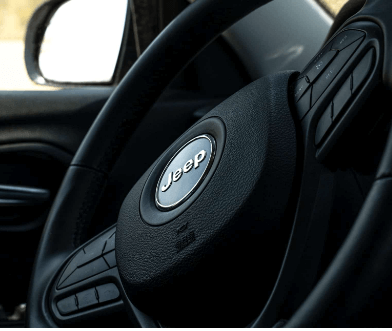
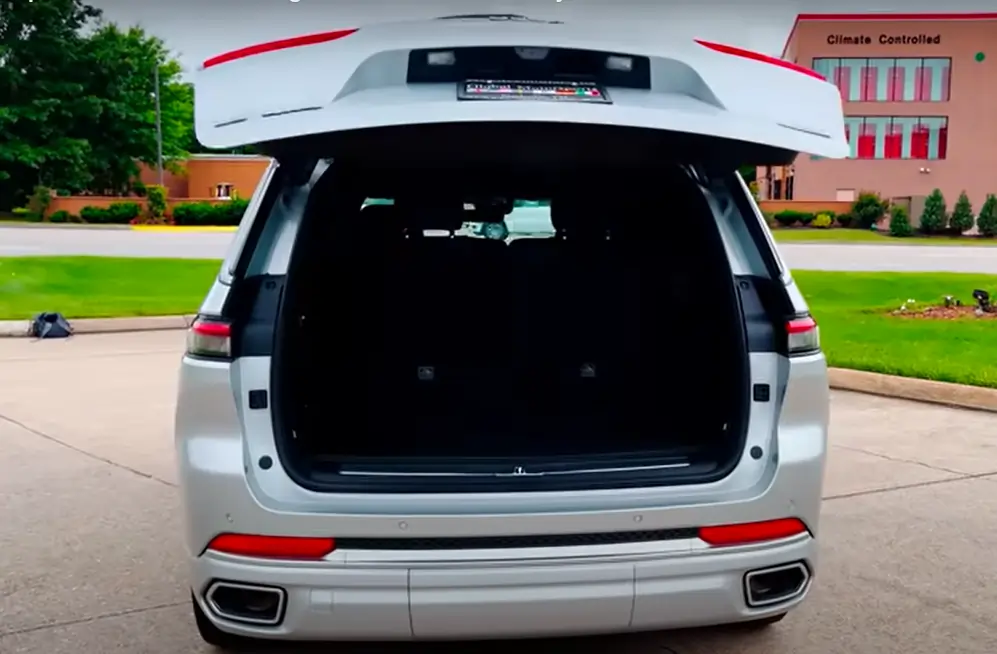
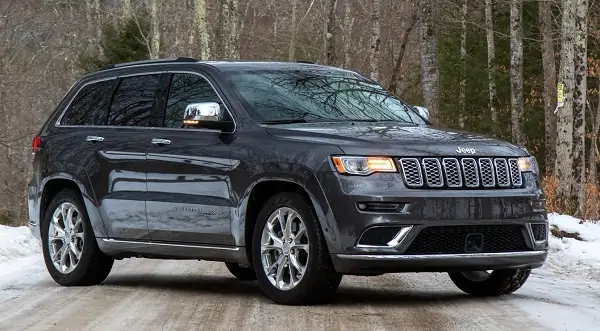




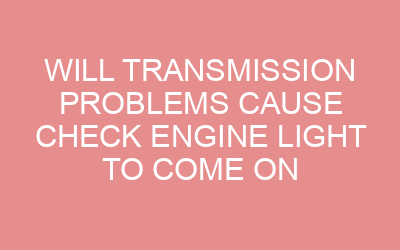




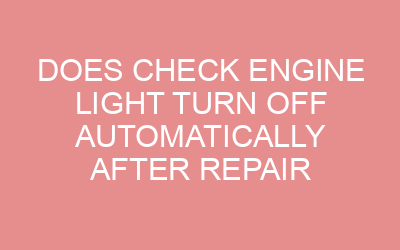
Leave a Reply